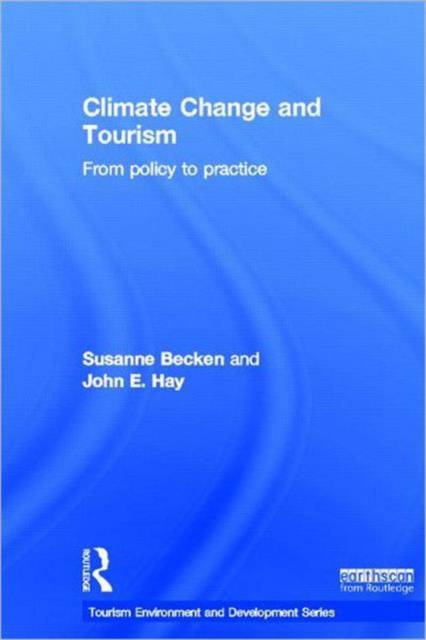
- Afhalen na 1 uur in een winkel met voorraad
- In januari gratis thuislevering in België
- Ruim aanbod met 7 miljoen producten
- Afhalen na 1 uur in een winkel met voorraad
- In januari gratis thuislevering in België
- Ruim aanbod met 7 miljoen producten
Omschrijving
The contribution of tourism to climate change, and the likely consequences of climate change for key tourist destinations, has been well reported and discussed. Yet, there is a lack of evidence-based systematic practical advice as to how the tourism industry should respond to the challenge of climate change. Building on a sound conceptual understanding of the links between climate change and tourism, this book shows how the tourism sector might best respond. It not only focuses on the roles of supportive policies and institutions in ensuring a strong "enabling environment" for practical responses, but also on the practical responses themselves.
This practical approach is presented through a large number of case studies and examples which illustrate how policy and industry initiatives have been implemented in tourism, and if or why they were successful. The majority of examples come from places such as the Caribbean, Spain, the Maldives, Nepal, and the UK, as well as Australia, New Zealand and other parts of the Pacific. The examples are presented within an overall framework that facilitates the translation of adaptation and mitigation policies into practice.
This book offers the tourism industry, students and academics the opportunity to advance from the earlier, more conceptual texts on tourism and climate change by taking a much more practical approach. Its global coverage, through the use of international case studies, fosters a cross-fertilisation of ideas and initiatives. This text provides a detailed analysis of best practices in the face of climate change, across countries and geographically diverse tourist destinations and operations.
Specificaties
Betrokkenen
- Auteur(s):
- Uitgeverij:
Inhoud
- Aantal bladzijden:
- 296
- Taal:
- Engels
- Reeks:
Eigenschappen
- Productcode (EAN):
- 9781849714754
- Verschijningsdatum:
- 14/06/2012
- Uitvoering:
- Hardcover
- Formaat:
- Genaaid
- Afmetingen:
- 156 mm x 234 mm
- Gewicht:
- 589 g

Alleen bij Standaard Boekhandel
Beoordelingen
We publiceren alleen reviews die voldoen aan de voorwaarden voor reviews. Bekijk onze voorwaarden voor reviews.









